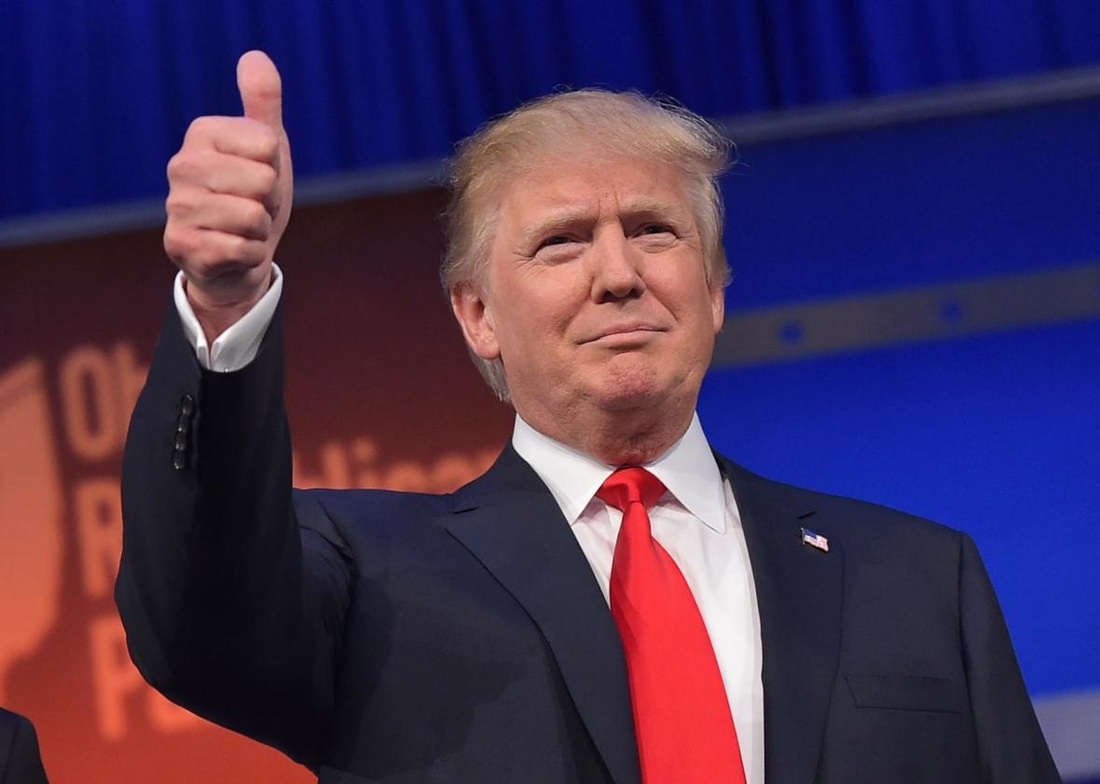|
By John De Gree
Donald Trump is the presumptive Presidential nominee for the Republican National Party. This means, that everyone presumes he will represent the Republican Party in the general election. As the Republican Party nominee, he will face the nominee for the Democratic National Party in the general election, which takes place Tuesday, November 8, 2016. The winner of this election will be inaugurated President of the United States of America on Inauguration Day, Friday, January 20th, 2017. In many ways, Donald Trump’s campaign to win the Republican state primaries has been unusual. State Political Party Primaries, Caucuses, and Donald Trump Because American Founding Fathers detested centralized decision-making and control of the country, they left it up to each state how it would choose political electors and candidates for President. Beginning in February, both the Republican and Democratic state parties have held elections to choose their candidates. The first candidate on the Republican side to win 1237 delegates (half plus one of the total) would become the Republican Presidential nominee. Donald Trump needs less than 200 more delegates and nobody questions if he will reach this number before the Republican Convention in July 18-21 in Cleveland, Ohio. In the first Republican state primary, there were 17 candidates. The large number of candidates was partly because President Obama is a Democrat and he is leaving the White House. For eight years, there has been no clear leader of the Republican Party. Many Republicans with political experience thought this was their chance. Of the candidates were sitting and past governors, senators, a former attorney general, a doctor and two business professionals. Most believed one of the professional politicians would win. Because of the large number of candidates, not one candidate has won a majority of votes in most of the primaries. In fact, not one candidate has captured over 50% of the total vote for the Republicans. However, Donald Trump has captured a plurality of votes in more states than the other candidates. A plurality means a greater number of votes than others, but not reaching 50%. Because of Trump’s victories by plurality, he has been able to capture enough delegates that will put him over the 50% mark. This is because in many states, the political party decided to make the primary a “winner-take-all” primary. Any candidate who wins a plurality of votes captures all of the delegates. However, in the past seven state primaries, Donald Trump has captured 50% of the vote, winning with commanding leads in Indiana, Rhode Island, Pennsylvania, Maryland, Delaware, Connecticut, and New York. Donald Trump is a Controversial Candidate For many reasons, Donald Trump is a controversial candidate. The following is a list of complaints some have raised against Mr. Trump. It is interesting to note that many of the complaints can also be seen as positives, depending on perspective.
The last primary elections take place June 7th. Either before or on this date, barring an unforeseen event, Donald Trump will become the Republican Party nominee and will face the Democratic nominee in the 2016 election. The Classical Historian will provide articles discussing the positions all candidates have on the major issues in the coming months. Questions
By John De Gree. Copyright 2016. All Rights Reserved.
0 Comments
Leave a Reply. |
John De GreeJohn De Gree writes the current events with a look at the history of each topic. Articles are written for the young person, aged 10-18, and Mr. De Gree carefully writes so that all readers can understand the event. The perspective the current events are written in is Judeo-Christian. Receive Articles and Coupons in Your EmailSign Up Now
For Email Marketing you can trust. Archives
June 2024
Categories
All
|
|
SUPPORT
|
RESOURCES
|
|



 RSS Feed
RSS Feed



